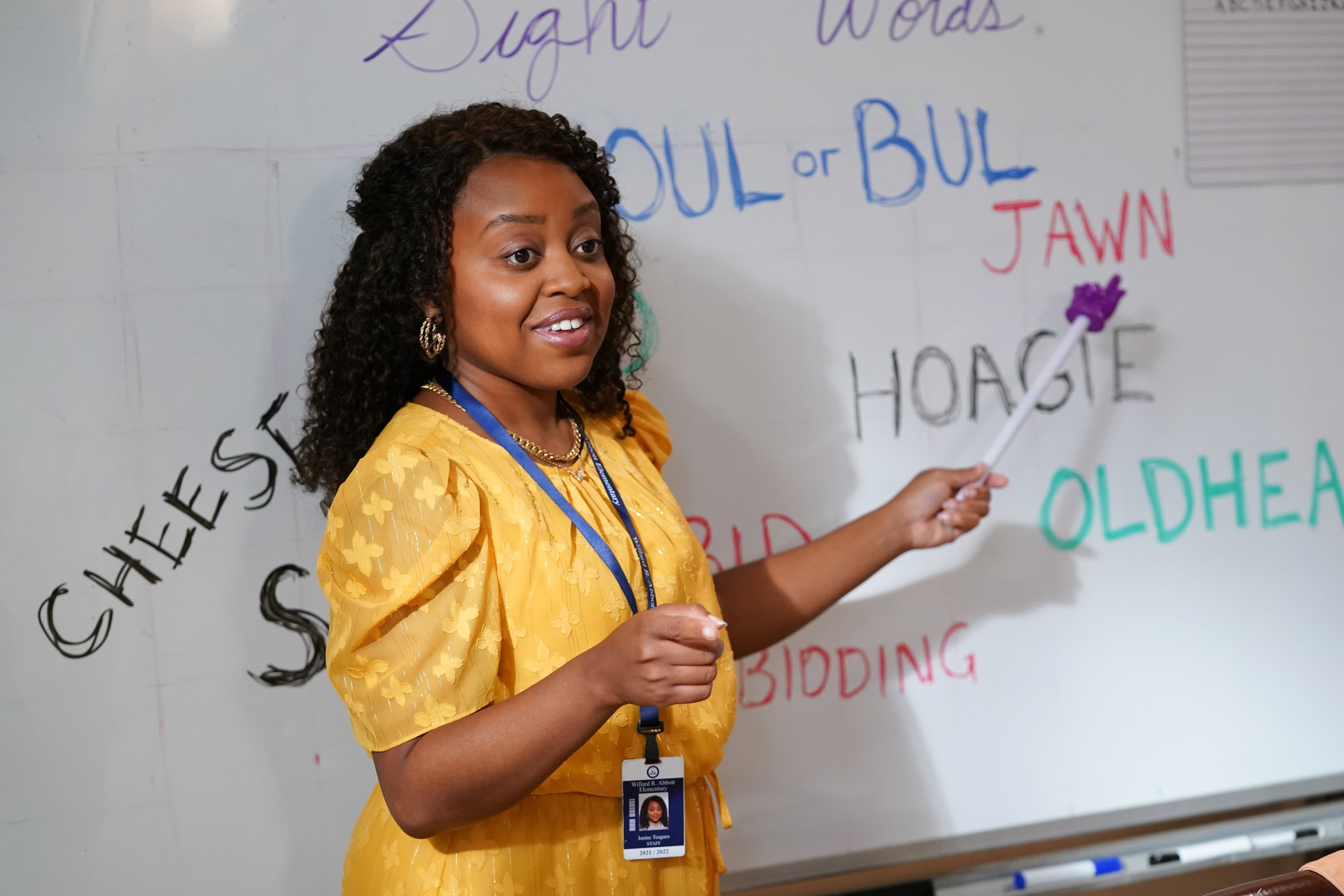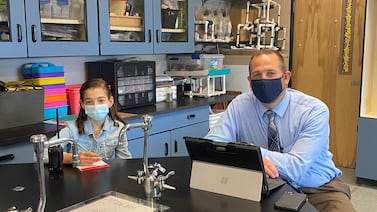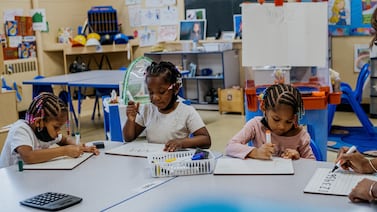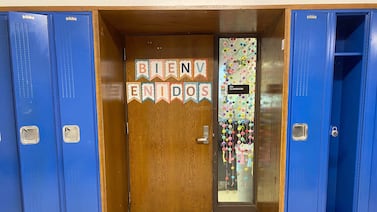More than 600 new teachers and counselors in Philadelphia kicked off their week-long orientation on Monday, and this year, for the first time, the issue of race is a required discussion topic.
Most of the sessions for new hires are tailored to the teacher’s specialty, such as elementary school math, high school science, special education, digital literacy, art, and music. But there are also sessions on helping students deal with trauma, becoming a “culturally responsive” teacher, and on “racial equity and the history of Philadelphia.”
Within the past several years, the district created an Office of Diversity, Equity and Inclusion to study racism on an individual and institutional level, provide training and examine current practices. Discussions in past years have dealt with race, but have always been voluntary.
The focus is designed to help teachers forthrightly deal with a subject that is often avoided: Most of Philadelphia’s teachers are white, while most of the students are Black or Hispanic.
Sia Beckwith, who works in the district’s DEI office and is one of the trainers in this new session, presents that demographic information (which dates to last February) and explores why it matters with the new hires. Beckwith said the point is not to say white teachers can’t teach students of color or vice versa, but rather to make sure teachers are “mindful of the disproportionality, and always consider what that might mean that we’re missing.”
Ryan Villanueva, also from the DEI office and another presenter, said he and Beckwith aim “to support the district in becoming more antiracist and more equitable. We felt it’s important to get in front of new teachers to support that learning and growth, because the way we’re socialized is not to have too many discussions about race.”
For the third straight year, the district’s orientation for new hires is virtual, rather than in person. For the sessions, teachers are grouped based on their years of experience, either as a novice with two years or less, or a veteran with at least three years in the classroom.
“Everyone is coming with a different background,” said Meredith Mehra, the Deputy Chief for Teaching and Learning who designs the training.
In addition to the training sessions, the new hires heard short greetings from Superintendent Tony Watlington, Board of Education President Joyce Wilkerson, and Jerry Jordan, president of the Philadelphia Federation of Teachers.
“We have a couple of things in common. I join you in my new status here,” said Watlington, who took over the district in mid-June. “Sometimes it can feel like you’re drinking from a fire hose.”
Watlington, who most recently worked in a North Carolina district, confessed that on a pop quiz about quintessentially Philly words — like “jawn” — he only got two right.
“I have some work to do,” he said.
‘I love to see the children succeed’
When the district began hiring for the upcoming school year, they had to fill roughly 900 vacancies among 9,000 total positions for teachers and counselors. With roughly three weeks to go until the school year begins Aug. 29, there are 270 vacancies for those positions, and the district is 97% staffed.
This year, as in the past, the hardest jobs to fill are in special education, math, science, and English as a second language, according to a district spokesperson.
Another session for Philadelphia’s new hires about “culturally responsive” training is to help teachers “to marry inclusive and equitable practices with routines and procedures in the classroom,” Mehra said.
The session is designed to help teachers comply with Policy 252, which was adopted by the district in 2016 and focuses on “safety, equity and justice for students regardless of gender identity or gender expression.”
For instance, Mehra said, it has been common in schools to line up students for excursions outside the classroom in two lines, one for boys and one for girls.
“If it is not part of an actual instructional purpose, there is no need to separate students by gender,” she said. “If you need to split the class into two groups, you can do it based on a variety of factors outside of gender.”
One of the new recruits is Cameile Graham, who will be a life skills teacher for kindergarten through second grade students at Overbrook Education Center, where her daughter is a fourth grader. Her son, who has special needs, attends the Widener Memorial School for students with disabilities.
Graham said she taught for 20 years in her native Jamaica, and with her children in the system, she decided to reenter the education workforce.
“I am from a family of educators,” said Graham, who lives in West Philadelphia. “I appreciate the teaching and learning process and I love to see the children succeed. I share the belief of [Dr. Watlington] that all children deserve great schools, and I’m excited to be a part of that,” she said.
Dale Mezzacappa is a senior writer for Chalkbeat Philadelphia, where she covers K-12 schools and early childhood education in Philadelphia. Contact Dale at dmezzacappa@chalkbeat.org.








